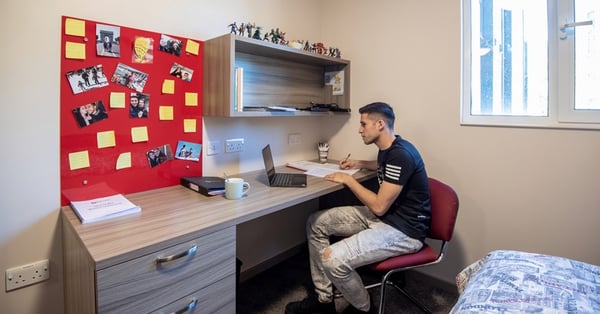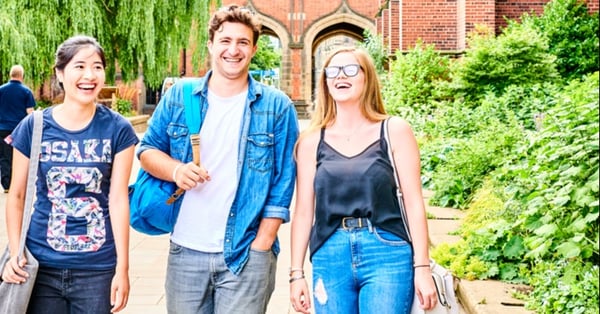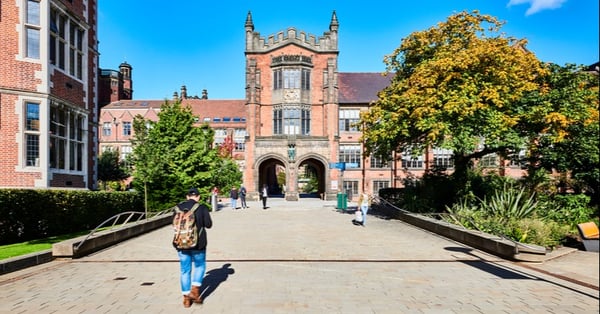Culture shock is common among students arriving in the UK to study abroad. You’ll notice differences between the way things are done and what you are used to at home, including the way people dress, speak, teach, learn and other everyday aspects of life.

This might leave you feeling a little confused and homesick. But don't worry, it is normal to feel a little unsure when you arrive in a different country. Remember that you are not alone and there are ways you can overcome this feeling.
Tips on how to deal with culture shock
Studying in another country is a big decision. Although at times it might seem daunting, travelling overseas allows you to attend some of the best universities in the world. You’ll have access to industry-leading researchers and world-class facilities if you choose to study at a university that’s part of the Russell Group here in the UK.
The first step to overcoming culture shock is to understand that this is a normal experience. Many other students are feeling the same way. Don’t worry if the UK is different from what you’re used to. Here are some tips to help you.
British culture
Dealing with culture shock is much easier if you try to get to know the British culture, so read about the culture and local customs before you arrive in the country.
Here are some interesting facts about British culture to get you started:

- Many people assume that England is rainy and wet. In fact, it probably rains no more than anywhere else in Europe. However, it’s always best to be prepared for wet weather, so carry an umbrella just in case!
- On average, the British drink four to five cups of tea a day. Simply offering somebody a cup of tea is a great way to make friends or start a conversation.
- From Newcastle’s 'Geordie' accent to Liverpool’s 'Scouse', you’ll notice there are lots of accents in the UK. It might take you some time to understand all the different words and phrases but don’t worry, the more time you spend socialising, the more you'll understand them.
Family and home life
Although your family won’t be as accessible, it’s still important to talk to them and share your experiences with them. University can be very hectic, so make time to stay in regular contact.
Here are some tips on maintaining your relationships and making sure you settle in to your new surroundings.

- Keeping in touch with home is an important part of living in a different country. You can video call using apps like WhatsApp, and share news, information and photos of your life in the UK through online social networks. Try to balance maintaining contact with home with taking time to get to know your new environment.
- Have familiar things around you that have personal meaning, such as photographs and ornaments.
- Find a supplier of your favourite food, if you can. Many supermarkets in the UK stock delicious food from all over the world. You can make dishes that remind you of home and share them with other students.
Friends
With a great group of friends, your study abroad experience can be one of the best of your life. The UK is a popular destination for students and gives you the chance to meet people from all over the world.
Here are some tips to meet new people and make lifelong friendships.

- Make friends with students, whether from your own culture or from others, as they will understand how you’re feeling. Having friends means you learn more about each other’s culture.
- As Covid-19 restrictions are eased, explore everything the UK has to offer with your new friends; this is a great way to adjust to your new surroundings.
- Be proactive and find activities that give you a common interest with other students. You can join societies, try new things and make friends - even if you have to meet virtually at the moment. Societies bring together students from different courses and countries with a shared interest. There are often national societies that will celebrate significant occasions such as Chinese New Year or Eid.
- Exercise is good for you and your mental health, so make sure you’re taking regular exercise. Newcastle has a 50-acre campus with vibrant green spaces to enjoy.
University life
Universities have dedicated events and activities to help you get involved and settle in. At the moment, many of these events are taking place online to help you become familiar with your new surroundings. So, whether you’re experiencing culture shock, feeling homesick or just need some advice, they’ll have people available to chat.
Here’s how your university can help you feel at home in the UK.

- 480,000 international students are welcomed to the UK every single year so we understand the worries you might have when you arrive. At Newcastle our Student Health and Wellbeing service is available to help with everything from finances to your health.
- Your university might offer a welcome service. At Newcastle our International Office can meet you at Newcastle International Airport and make sure you get to campus safely. We also organise an International Welcome Week of special activities to help you settle in with us. If Covid-restrictions are still in place when you join us, these events will be online.
- Your university may hold a Freshers’ Week of events during the first week that all students are together on campus. Again, these will be online if restrictions are in place, but they're still a great opportunity to meet other students in the same situation as you, get to know them and ask them questions.
- Follow your university on social media. Some universities have various different accounts for each department or school, so find the one you're interested in. At Newcastle, you can follow us on Facebook, Twitter, Instagram and Snapchat. You can also find us on Weibo, or subscribe to our Youtube channel.
These are just some of the many things the UK has to offer international students. All of these are a big benefit to you as a student because it’ll help you become more independent, confident, self-reliant and you’ll build a network of valuable connections to help your career.